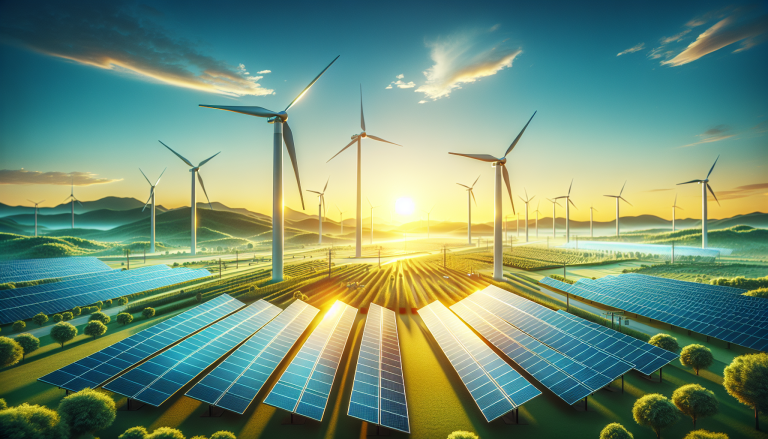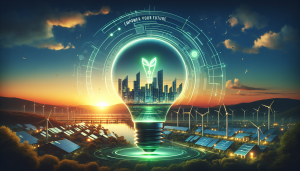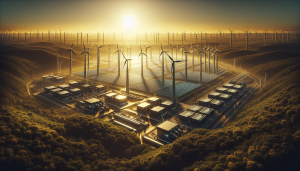The Green Revolution: Transforming the Energy Business Landscape
In the rapidly evolving world of global commerce, the energy business stands at a critical crossroads, balancing traditional power generation with groundbreaking sustainable innovations. Today’s energy landscape is not just about powering our world, but reimagining how we create, distribute, and consume power for a more sustainable future.

The traditional energy business model has long been dominated by fossil fuels, but a seismic shift is underway. Renewable energy sources are no longer alternative options—they’re becoming the primary drivers of economic and environmental strategy. Companies that understand this transformation are positioning themselves at the forefront of a global green revolution.
The Changing Dynamics of Energy Production
Consider the remarkable trajectory of renewable energy over the past decade. Solar and wind technologies have experienced unprecedented cost reductions, making them increasingly competitive with traditional energy sources. According to the International Renewable Energy Agency, solar photovoltaic costs have dropped by 82% since 2010, creating unprecedented opportunities for businesses and investors.
“The future of energy is not about choosing between economic growth and environmental sustainability—it’s about achieving both simultaneously,” says Dr. Elena Rodriguez, a leading energy policy expert.
Strategic Innovation in the Energy Sector
Successful energy businesses are now implementing multi-faceted strategies that integrate technological innovation, sustainable practices, and forward-thinking investment approaches. Key areas of focus include:
1. Advanced Energy Storage Solutions
• Development of high-capacity battery technologies
• Grid-scale energy storage systems
• Smart grid infrastructure investments
2. Decentralized Energy Networks
• Microgrids enabling local energy generation
• Peer-to-peer energy trading platforms
• Community-driven renewable energy projects
3. Artificial Intelligence and Machine Learning Integration
• Predictive maintenance for energy infrastructure
• Real-time energy consumption optimization
• Enhanced grid management and efficiency
Emerging Technologies Reshaping the Energy Business
Breakthrough technologies are fundamentally transforming how we conceptualize energy production and consumption. Hydrogen fuel cells, advanced geothermal systems, and next-generation solar technologies represent just a few of the exciting developments on the horizon.
Take, for instance, the rapid advancement of green hydrogen. Companies like Bloom Energy and NEL Hydrogen are developing scalable solutions that could revolutionize industrial power generation, offering zero-emission alternatives to traditional fossil fuel technologies.
Economic and Environmental Imperatives
The business case for sustainable energy is stronger than ever. Investors, governments, and consumers are increasingly demanding environmentally responsible energy solutions. This shift is not merely about corporate social responsibility—it represents a fundamental economic opportunity.
Key economic benefits include:
• Reduced operational costs
• Enhanced brand reputation
• Access to new market segments
• Government incentives and tax benefits
• Long-term sustainability
Navigating Challenges and Opportunities
While the transition to sustainable energy presents immense opportunities, it also involves complex challenges. Successful energy businesses must develop robust strategies that address:
• Regulatory compliance
• Technology integration
• Infrastructure investments
• Workforce reskilling
• Financial risk management
Companies like NextEra Energy and Ørsted have demonstrated how strategic adaptation and innovative thinking can transform traditional energy businesses into sustainable market leaders.
The Human Element: Skills for Future Success
As the energy business evolves, professionals must cultivate a diverse skill set. Critical competencies include:
• Systems thinking
• Technological adaptability
• Cross-disciplinary collaboration
• Data analytics
• Sustainability strategy development
“The most successful energy professionals will be those who can bridge technological innovation with strategic vision,” notes Mark Thompson, a renowned energy industry consultant.
Looking Forward: A Sustainable Energy Ecosystem
The future of the energy business is not about selecting a single technological solution but creating an integrated, adaptive ecosystem. Successful organizations will leverage a combination of renewable technologies, smart infrastructure, and innovative business models.
Emerging trends suggest we’re moving towards a more decentralized, democratized energy landscape where consumers become active participants rather than passive recipients of power.
Conclusion: Embracing Transformative Potential
The energy business is experiencing a profound transformation. By embracing innovation, sustainability, and strategic thinking, companies can not only survive but thrive in this new paradigm.
Those who view current challenges as opportunities for reimagining energy production will lead the next wave of global economic and environmental progress. The journey has only just begun, and the potential for positive change is boundless.



